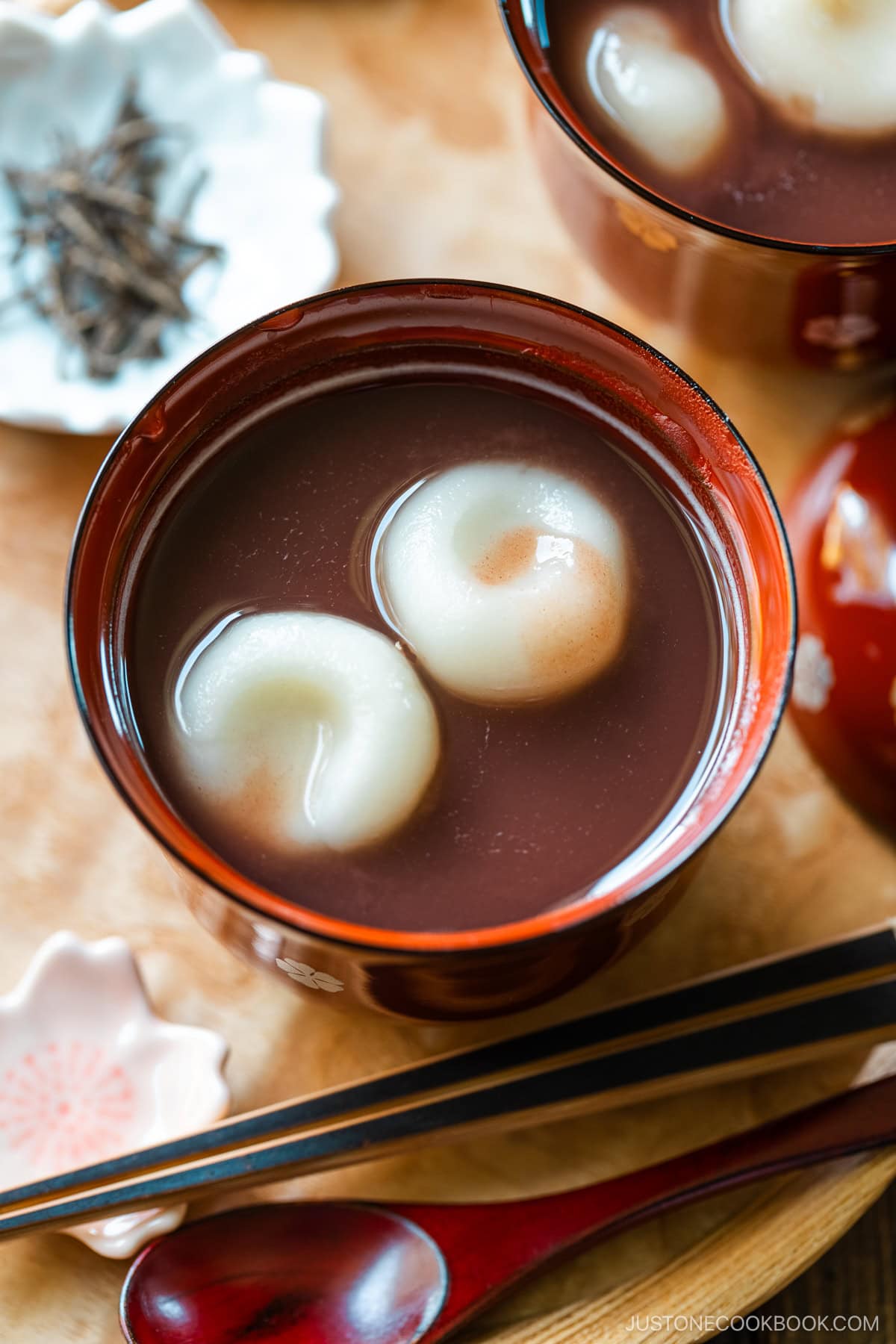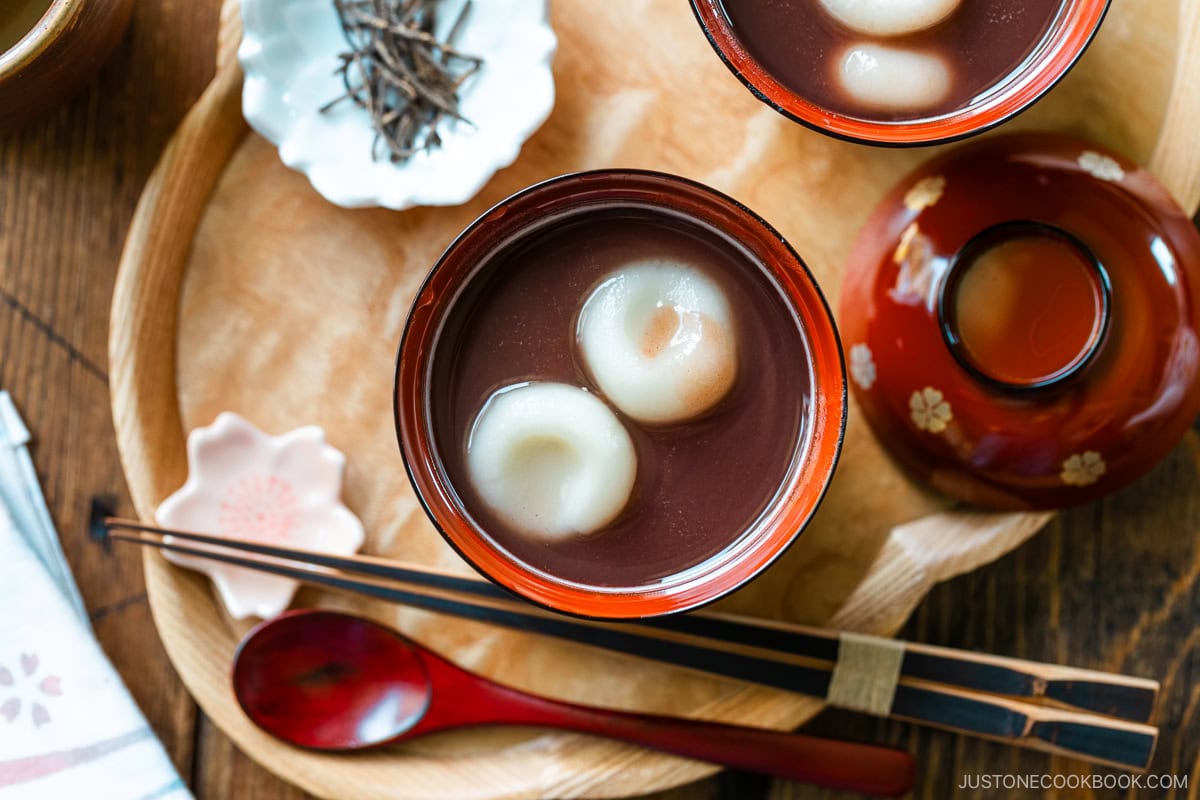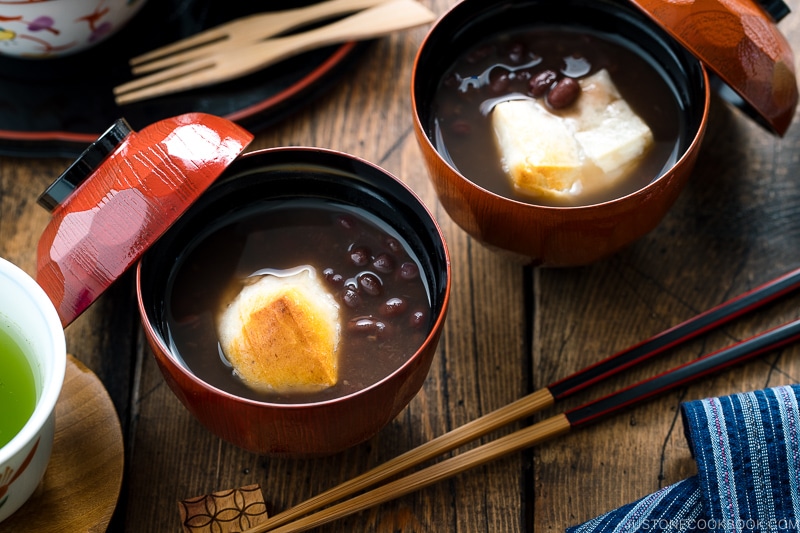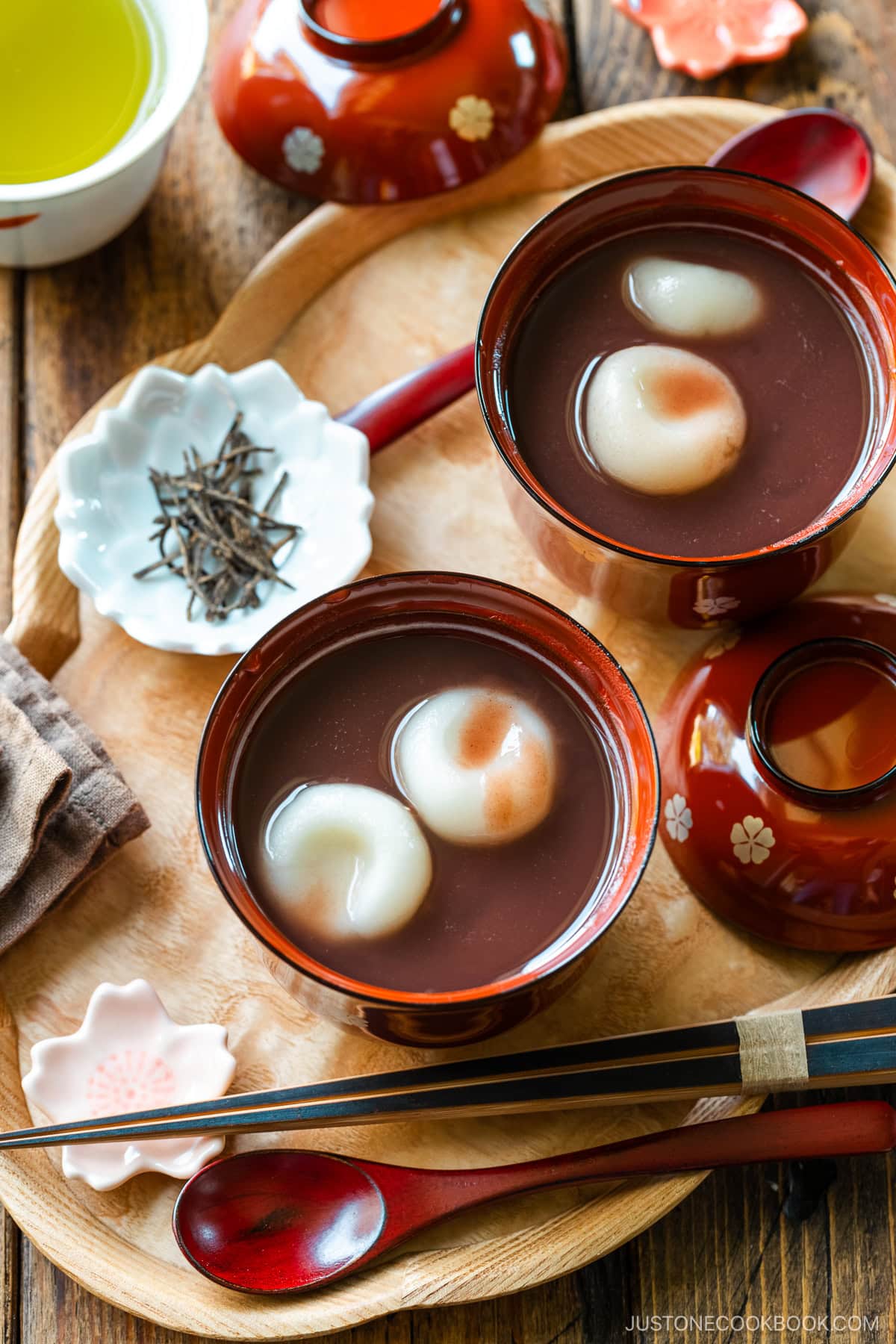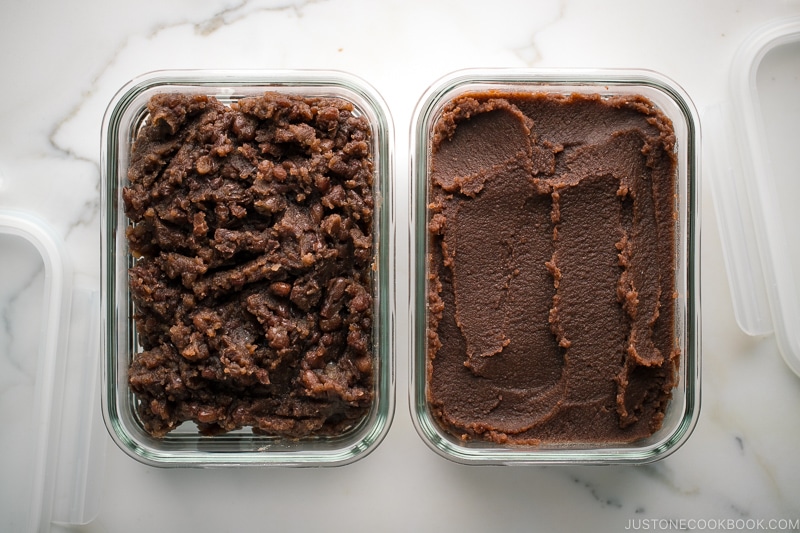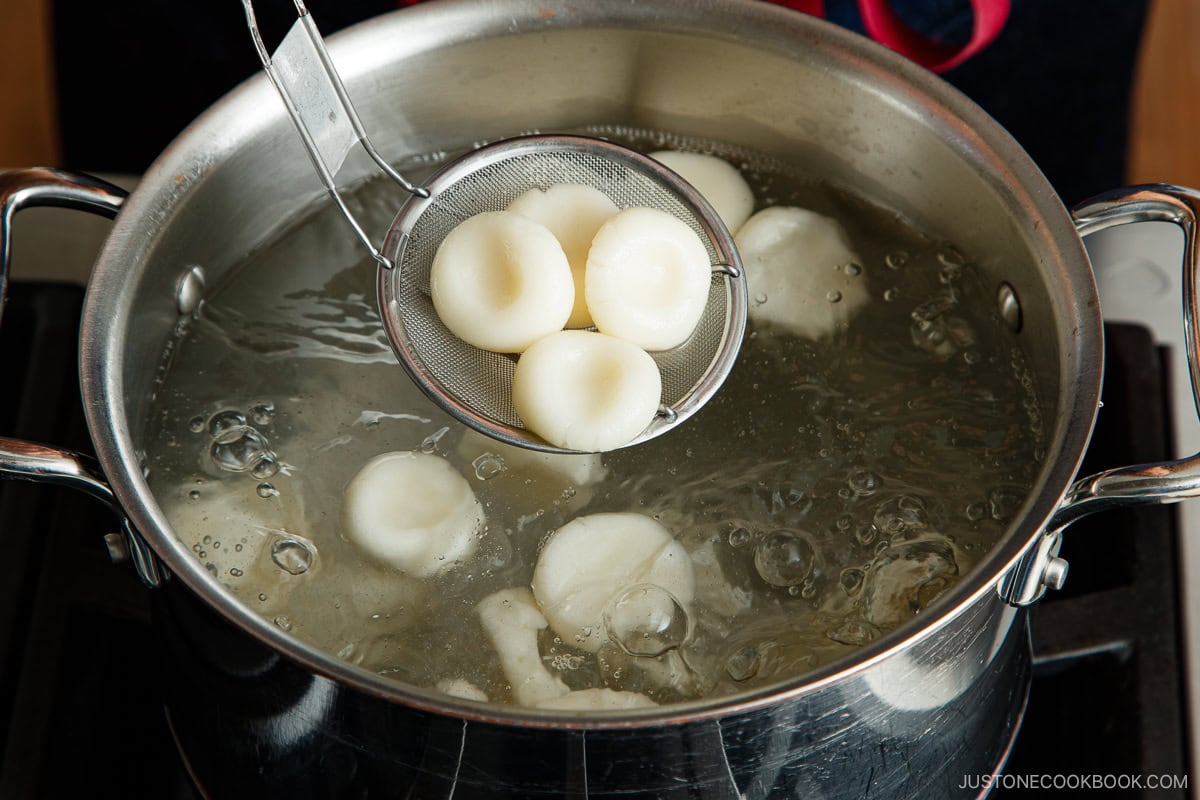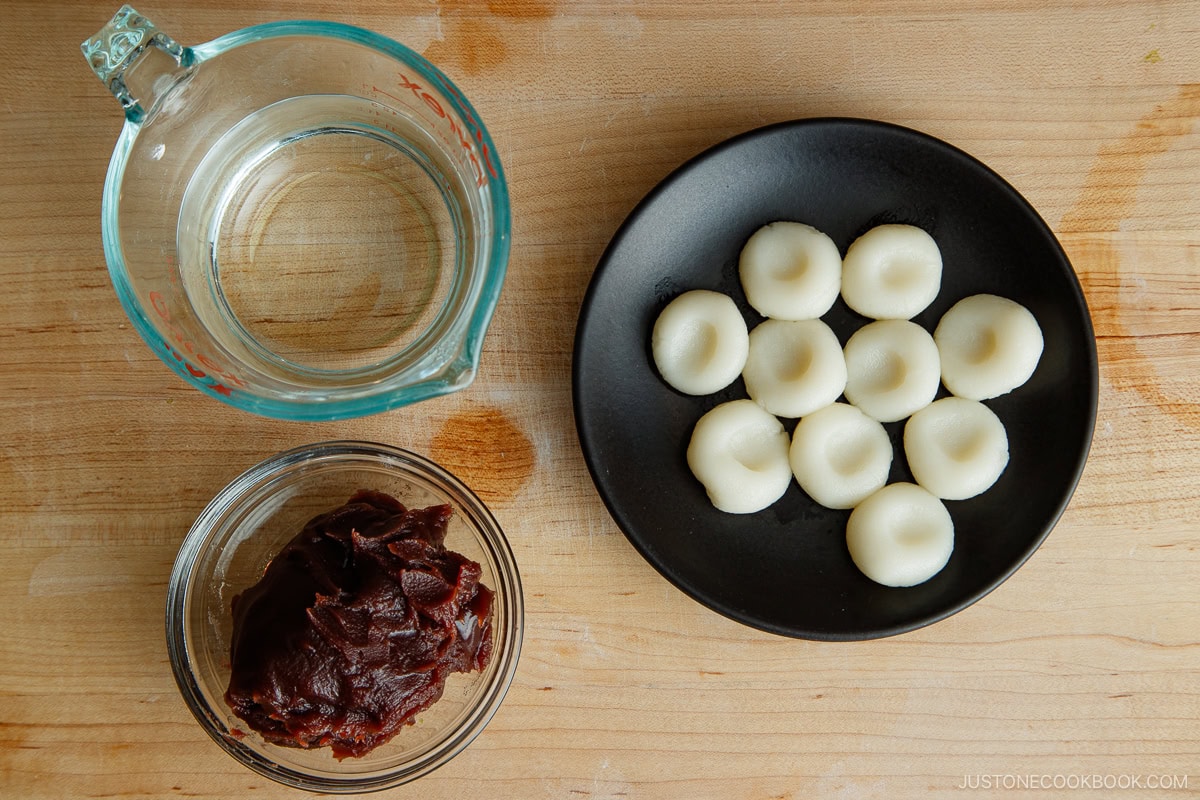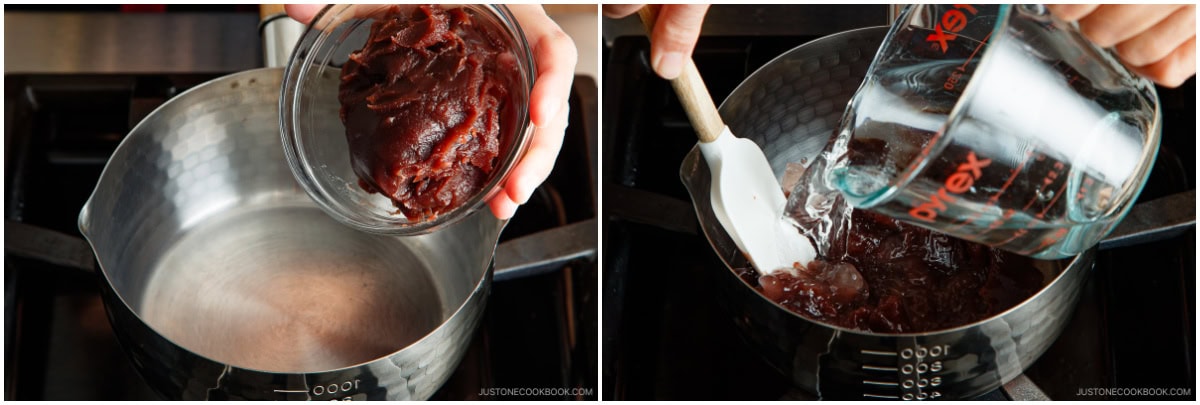When the weather gets cool, I crave foods that are warm and comforting. This goes for Japanese sweets, too. It’s no wonder that oshiruko (お汁粉) was a favorite wintertime dessert of mine growing up in Japan. I could never resist this sweet red bean soup, especially during the colder months. A belly full of hot oshiruko always warmed me up on a chilly day. I now live where the climate is cool much of the year, so I’m happy that I can enjoy this nostalgic and cozy dessert year-round. Luckily, it’s easy to whip up a delicious bowl of sweet azuki bean soup at home with store-bought ingredients. Let me show you how with my Oshiruko recipe!
What is Oshiruko?
Oshiruko is a traditional Japanese dessert soup made with sweet red bean paste called anko (餡子) and chewy glutinous rice flour dumplings called shiratama dango (白玉団子). For a smooth texture, we use a fine paste called koshian (こしあん). This beloved dish is typically served warm during the colder months. Its history in Japanese cuisine dates back to the Edo period (1603–1868), when it became more popular among commoners as sugar became widely available. Today, we enjoy oshiruko both in everyday home cooking and for special cultural events like New Year’s Kagami Biraki, Hinamatsuri (Japanese Girl’s Day), and Setsubun (Bean Throwing Festival).
Oshiruko vs. Zenzai
What‘s the difference between Oshiruko and Zenzai (ぜんざい, 善哉)? It depends on the area of Japan! Since my mom is originally from Osaka, I grew up following the Kansai way.
In the Kansai region (Osaka area):
Oshiruko is smooth red bean soup without whole beans. Zenzai is chunky red bean soup with whole beans.
In the Kanto region (Tokyo area):
Oshiruko is any red bean soup, either the smooth or chunky type. Zenzai is not a soup; it’s dry mochi served with chunky red bean paste.
Ingredients for Sweet Red Bean Soup
You only need a few ingredients to make this recipe:
Substitution Tips and Variations
You can vary the texture and flavor of your soup with these options:
Use tsubuan, a chunky-type anko, if you want extra texture in the soup. When the soup has whole azuki beans, we call it Zenzai. Add chewy mochi pieces in place of shiratama dango. Toast or grill bite-size pieces of dried Japanese rice cake called kirimochi; see how in my Zenzai recipe. It’s a good way to use your old new year mochi or kagami mochi! You can also use freshly made or boiled mochi rice cakes. Top it with Japanese flavors. In wintertime, try sprinkling kinako (roasted soybean flour), matcha (green tea powder), yuzu juice or zest, or kuromitsu (black sugar syrup) on your oshiruko. During other seasons, add pickled cherry blossoms in springtime and chestnuts in autumn. Serve with ice cream or fruit. For a delicious hot-cold combo, add a scoop of ice cream to your warm oshiruko and serve with a small crispy waffle. For a refreshing twist, top your warm soup with your favorite chilled seasonal fruits like berries and peaches.
How to Make Oshiruko
It could not be simpler to make this soup using prepared red bean paste.
Recipe Tips and Techniques
Add only half the water to dissolve the anko. It’s easier to do if you use less water. Once it’s dissolved, add the rest of the water and heat the soup. Add a pinch of salt to the soup to bring out the sweetness of the anko. While this is optional, I recommend it to enhance the soup’s flavor. Heat the oshiruko on low heat. The thick soup can swell and erupt suddenly, splattering over the pot.
How to Store
To refrigerate or freeze: Transfer the soup to an airtight container. Store it in the refrigerator for up to 4 days or in the freezer for up to a month. To reheat: Prepare the shiratama dango or mochi right before you serve the oshiruko.
How to Make Fine-Paste Anko (Koshian)
While I use store-bought anko for convenience, you can also make it from scratch with my Homemade Anko or Pressure Cooker Anko recipes:
How to Make Shiratama Dango
It’s very easy to make shiratama dango at home. You can click here for the recipe.
What to Serve with Oshiruko
Wish to learn more about Japanese cooking? Sign up for our free newsletter to receive cooking tips & recipe updates! And stay in touch with me on Facebook, Pinterest, YouTube, and Instagram.
